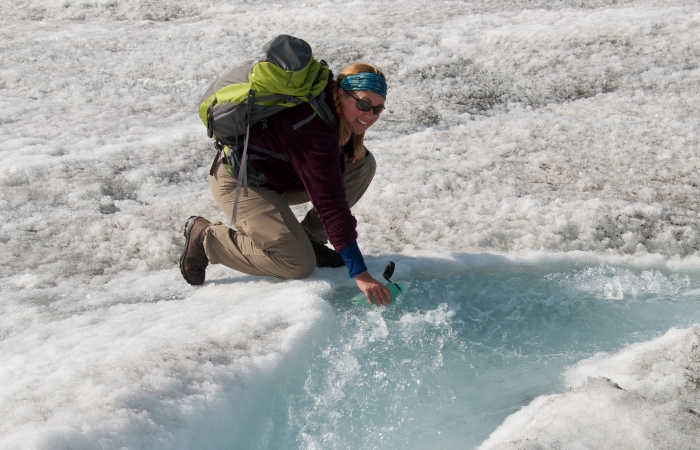By: Sarah Bartholow and Janet Warburton, Education Project Managers, ARCUS
Beginning in April 2014, the most recent cohort of PolarTREC (Teachers and Researchers Exploring and Collaborating) teachers participated as research team members in scientific expeditions as part of the PolarTREC program. PolarTREC is a professional development, teacher research experience program funded by the National Science Foundation's Division of Polar Programs.
From 2010-2014 four cohorts of teachers were selected through a nationwide search to participate in polar research, working closely with scientists as a pathway to improving science education. Through PolarTREC, selected teachers have the rare opportunity to spend two to six weeks working with a research team in the Arctic or Antarctic. While on field expeditions, teachers and researchers share their fieldwork with scientists, educators, communities, and students of all ages through the use of virtual tools such as online teacher and researcher journals, message boards, photo albums, learning resources, PolarConnect real-time presentations from the field, and online learning resources. After the field experience, teachers and researchers continue to share their experiences with the public and create educational activities to transfer scientific data, methodologies, and technology to classrooms. For an example of how these tools are used, see the Antarctic Ice Stream Dynamics expedition.

Each year, the PolarTREC program develops products for dissemination as well as the improvement of existing products to best suit the needs of a growing audience. Teachers develop program portfolios with the major capstone of two lesson plans related to their expedition that adhere to the Next Generation Science Standards as well as local educational standards. Members of their research team review each lesson for scientific accuracy before publication. In turn, researchers are able to review the process of lesson planning and gain an appreciation for the process. To access PolarTREC lessons, users can search by types, topics, age level, keywords, and other fields in the PolarTREC Learning Resources Database.
New Resources Available
Project Pages
Projects are a collection of PolarTREC expeditions that are related and/or share the same research project. Projects were created as a way to show the depth and breadth of the research that is taking place in the polar regions. The goal is to showcase the on-going PolarTREC contributions to multi-year science initiatives.
Expedition Reports
These reports succinctly summarize teachers' professional benefits from the field experience, a description of field activities, and a classroom implementation plan. Reports are designed to target an audience of funders, researchers, and future participants. Researchers associated with PolarTREC expeditions will be able to utilize the reports to communicate their science and as a tool to share their broader impacts activities.
Product Pages
Beyond the products created by teachers and research teams, products have been created program-wide that serve to illuminate the broader view of PolarTREC impacts. Dissemination of these types of products is a key aspect of synthesis efforts in any science or education program. Researchers, program managers, project leaders, and funders have access to evaluations, publications, presentations and workshop and meeting proceedings and products.
For further information please see the PolarTREC website or contact Sarah Bartholow and Janet Warburton at info [at] polartrec.com.

